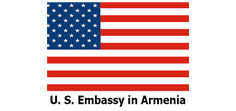Victor Soghomonyan, Head of the Office of the Second President Robert Kocharyan, announced at the July 29 press conference that the powers of the judge of Court of First Instance of General Jurisdiction of RA David Grigoryan were suspended after their team filed a bail petition.
“As you know the powers of a judge were suspended yesterday after proceedings of a criminal case were resumed against him, just the day after our attorneys filed a bail petition”- said Soghomonyan.
However, Fip.am found out that David Grigoryan’s powers were suspended on July 27 in a criminal case initiated in connection with official forgery based on a citizen’s report, while Robert Kocharyan’s attorneys’ petition to release the second president on bail was submitted on July 8.
That is to say, Grigoryan’s powers were suspended not a day after attorneys’ petition was submitted but at least 19 days later.
Justifications for Detaining Robert Kocharyan and the Criminal Case
At the beginning of the press conference Victor Soghomonyan touches upon the press conference called a year ago by their team after Kocharyan’s arrest and the statements made then. He reaffirms their team’s disposition of last year: “The criminal case fabricated against Kocharyan is illegal. What is taking place has nothing to do with disclosure of murders of March 1 victims. Today I reiterate the same statement.” At the press conference Soghomonyan specifies that the charge filed against Kocharyan was not a crime at the time it was executed. Moreover, according to him “the court detained Robert Kocharyan ignoring immunity and the absence of other conditions for detention.”
Last year Fip.am addressed the press conference mentioned by Victor Soghomonyan and revealed the manipulations made by Kocharyan’s attorneys.
As to Kocharyan’s indictment and the article on immunity, we have clarified that the president’s immunity has certain limitations. In the comments provided for Article 56.1 of the Constitution in force back in 2008, it is clearly stated that the immunity of the President does not mean the absence of his/her political constitutional responsibility. The law clearly defines that the President of the State may be subject to liability after the end of his office for actions not related to his/her status.
With regard to the statement that ongoing processes have no relation with disclosure of 10 murders of March 1, let us recall the statement made by the Special Investigation Service (SIS) on Robert Kocharyan’s indictment. It is clearly stated here that the criminal case relates to overthrow of Constitutional order, engaging Armed Forces in internal political affairs and not a single word about disclosing culprits of 10 victims of March 1.
It is noteworthy that Soghomonyan mentions that engagement of the Armed Forces was legal when speaking on this topic. “The engagement of the Armed Forces was absolutely legal, and this has been proven multiple times during both public trials and various debates. It is another matter that the prosecutor still continues to insist. However, even if we assume that he engaged the Armed Forces illegally, no law indicates that it implies constitutional overthrow…”
It should be noted here that Victor Soghomonyan is manipulating as overthrowing the Constitutional order is a crime prescribed by the Criminal Code (Article 300.1 of the Criminal Code RA), and not using the Armed Forces for political purposes is a norm enshrined in the Constitution.
The Constitution states that the Armed Forces shall not interfere in political events; “The armed forces of the Republic of Armenia shall ensure the defence, security, territorial integrity and inviolability of the borders of the Republic of Armenia. The armed forces of the Republic of Armenia shall maintain neutrality in political matters and shall be under civilian control” (Constitution of 2005, Article 8-2).
The indictment against Robert Kocharyan states overthrow of the constitutional order by the President was expressed through violating the political neutrality of the Armed Forces and using it against peaceful demonstrators.
Let us explain how it happened․
Paragraph 2 of Article 2 of the 2005 Constitution states that “usurpation of power by any organisation or individual shall be a crime.”
According to the charge, during the events of March 1, 2008, Robert Kocharyan took anti-constitutional control over the Armed Forces engaging them in domestic political events and bringing them against peaceful demonstrators.
Therefore, Robert Kocharyan has violated the unalterable Article 2 of the Constitution with such control over Armed Forces and usurped control of the Armed Forces. Thus he committed a crime enshrined in the Constitution.
It should also be noted that the statement made by the SIS explains how the armed forces interfered in political events. Let us cite the relevant part of the mentioned statement; “․․․ Mikayel Harutyunyan, the RA Minister of Defence on February 23, 2008 signed highly confidential obviously illegal order N 0038 «on fulfilling the tasks set by the RA Commander in chief», in which the peaceful meeting participants have been characterised as «civil forces not recognizing results of RA presidential elections, destabilizing the situation», and in order to assure the «natural development of the country» the full staff of the RA armed forces was confined to barracks. Officers teams were established armed with service weapon…
Robert Kocharyan’s charge and relation with Artsakh
Soghomonyan makes several statements on negotiations over Artsakh conflict. In particular, he accuses former president Levon Ter-Petrosyan of ceding Karabakh to Azerbaijan. “… Ter-Petrosyan came up with his well-known article” Peace or War “and virtually convinced us that we would not live well until we gave up Karabakh,” Soghomonyan said. In the article published in November 1997, Ter-Petrosyan does not convince that Karabakh should be “given” to Azerbaijan, but offers a staged option of returning “liberated” or “occupied” territories to Azerbaijan after clarifying the status of Nagorno-Karabakh rather than ceding Karabakh to Azerbaijan. .
Soghomonyan also claims: “When he (ed. Kocharyan) eventually stepped down as president, we had a document, I am speaking about the Madrid document, which Yerevan did not fully agree with and expressed great reservations about it. However, this document stipulates that the future of Nagorno-Karabakh will be determined by the free expression of will of its population the results of which can presumed.”
In fact, however, the Madrid Principles envisaged the return of “all the Azerbaijani territories adjacent to Nagorno Karabakh under Armenian control” to Azerbaijan. While “determination of future by free expression of will” mentioned by Soghomonyan refers only to the borders of the Autonomous Region of Nagorno-Karabakh of 1988, furthermore, by national proportion of 1988. That is to say, a Referendum should be held after about 40,000 Azerbaijanis returned to Nagorno-Karabakh. It is unclear why Soghomonyan presents the Madrid document as an achievement while presenting staged option of Ter-Petrosyan as “ceding of.”
Thus, the head of Robert Kocharyan’s office Victor Soghomonyan distorted the facts during the meeting with the journalists.

 FACTOMETER
FACTOMETER









